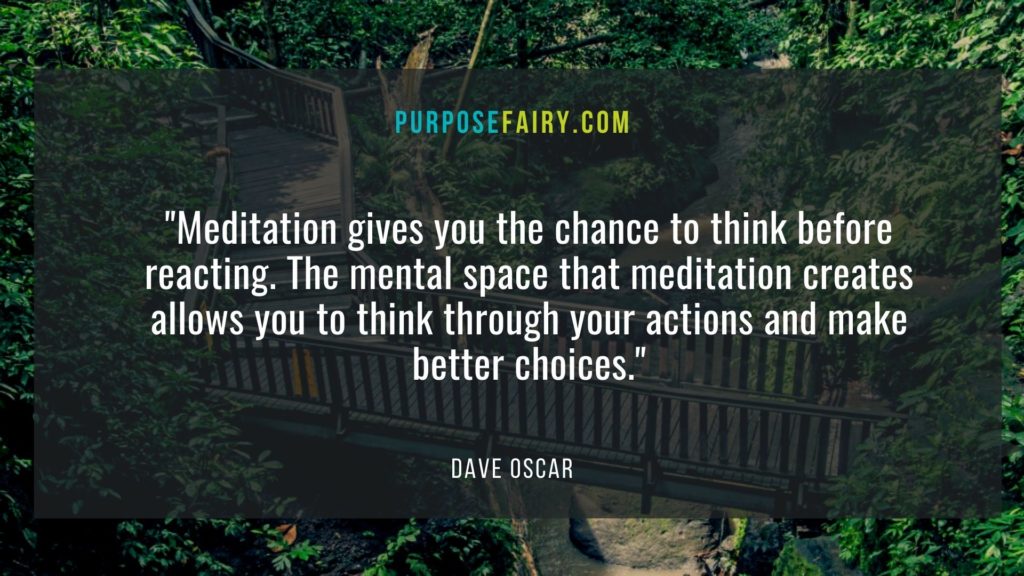
If you have ever been advised to practice mindfulness, you might wonder how exactly you can do that, as well as how it can benefit your daily life.
In short, mindfulness is the ability to be fully present and being completely aware of the things happening around you. When you are mindful, you should not feel overwhelmed or react excessively to the things that happen around you.
Mindfulness is often practiced through meditation where your focus should solely be on being intensely aware of your senses as well as what you are feeling in that moment without judgment or interpretation. This form of meditation involves the use of guided imagery, breathing methods, as well as other practices that help to reduce stress and relax the mind and body.
Benefits of Practicing Mindfulness
Throughout the day, it is common to find yourself stressed from an excessive amount of work, planning, problem-solving, and others alike. This increased stress can cause a strain in your mind which makes you more likely to experience anxiety and at times even symptoms of depression. As such, it is important to keep your mind healthy and direct negative thoughts away.

This can be achieved through practicing mindfulness exercises, where you can direct your attention away from the stress of daily life and instead focus solely on the world around you. Other than reducing your stress levels, practicing mindfulness can also bring about other benefits:
5 Great Reasons You Should Bring Mindfulness Into Your Everyday Life
1. Reduce distractions
By constantly training your mind to focus and concentrate on your surroundings, your ability to redirect focus will be improved. This is especially important in today’s day and age, where distractions are constantly pouring in 24/7, be it from mobile phones, TVs, radios, and others alike.
2. Better cognitive abilities
In 2010, a study was conducted to find out the effects of mindfulness meditation. 24 people were selected to undergo 4 sessions of mindfulness meditation while another 24 did not. Results shown suggest that those that underwent the meditation sessions reduced fatigue and anxiety.

In addition, improvements were also seen in the participants’ working memory, executive functioning, as well as visuospatial processing. The conclusion was that just four days of meditation training could enhance one’s ability to sustain attention. These results also align with the benefits previously reported with long-term meditators.
3. Improved relationships
Have you ever found yourself staring blankly at others as they speak because you were unintentionally losing attention? By practicing mindful meditation, you would be able to give due attention during conversations and be fully aware of what the other party is trying to express.
4. Improved relationship with yourself
When your mind crumbles under the pressure and responsibilities you face in daily life, you let pain rule your life and slowly lose control of yourself. Mindfulness will help you to connect with yourself and understand your physical and mental pain.

5. Increased ability to deal with and recover from illness
One of the most studied demographics of mindfulness meditation is those that are facing chronic health issues and potentially terminal illnesses like cancer. While mindfulness is certainly not a prescribed medication to combat illness, it can certainly help to make the illness more manageable. Practicing mindfulness helps to reduce stress and enhance spirituality.
A therapy program for cancer patients found that mindful meditation helped to reduce rumination and worry in patients. Not only is this beneficial to the patients, but it can also help to relieve caregiver burden in partners and other loved ones. In addition, mindfulness can also aid in post-traumatic growth and help patients to recover quicker from their illness.
Incorporating Mindfulness into Everyday Life
Other than practicing mindful meditation, there are other ways that you can incorporate practicing mindfulness in everyday life. For example, you can focus on your breathing whenever negative thoughts surface in your head, even for just a minute or two. You can also make the constant effort to be present and live in the moment, finding joy in the simple pleasures of life.
Lastly, pay attention to your experiences. Slow down from the fast pace of life and get in touch with your senses. Sit back and enjoy your favorite view and take your time to savor and truly enjoy your meals. You may also choose to take part in health and wellness programs that focus on the mind, body, and soul.
Comments
E. F.
read more
